At Disqus, we are proud and humbled to boast an expansive network of users. Since writers and publishers are always striving to learn more about their audience, we thought it was a good idea to ask our users what they read, how they read it, and why. We also asked questions around reader-publisher engagement and what content they pay for. To answer these questions, we recently conducted a survey and in just one day, we got 973 responses! Here’s a summary of the most interesting findings from our research.
What do commenters read and why?
71% of respondents said they frequently read news and politics, the largest self-reported category by far.
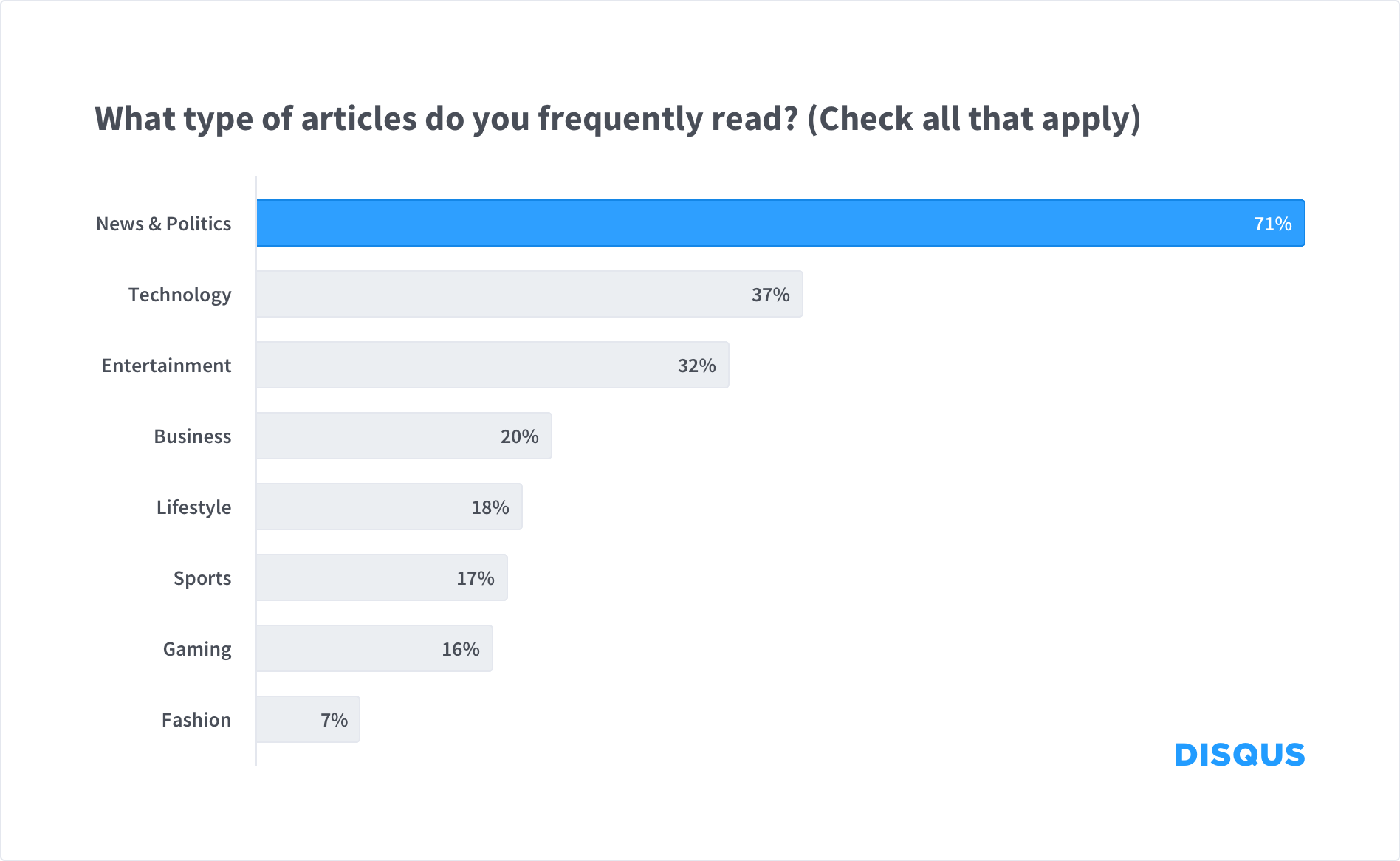
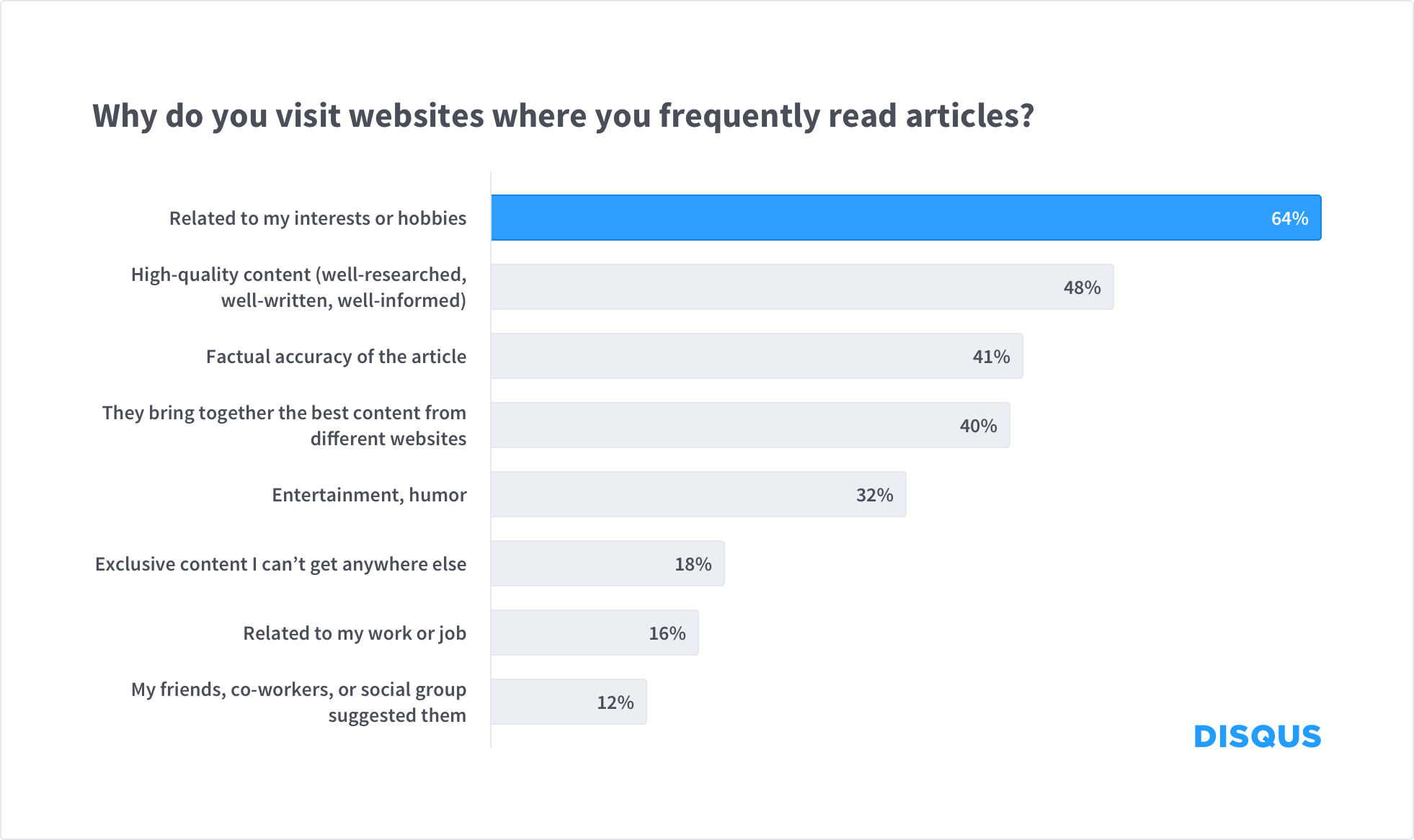
Just over half of our respondents said that they have purchased content (magazines, books, videos) related to their interests or hobbies.
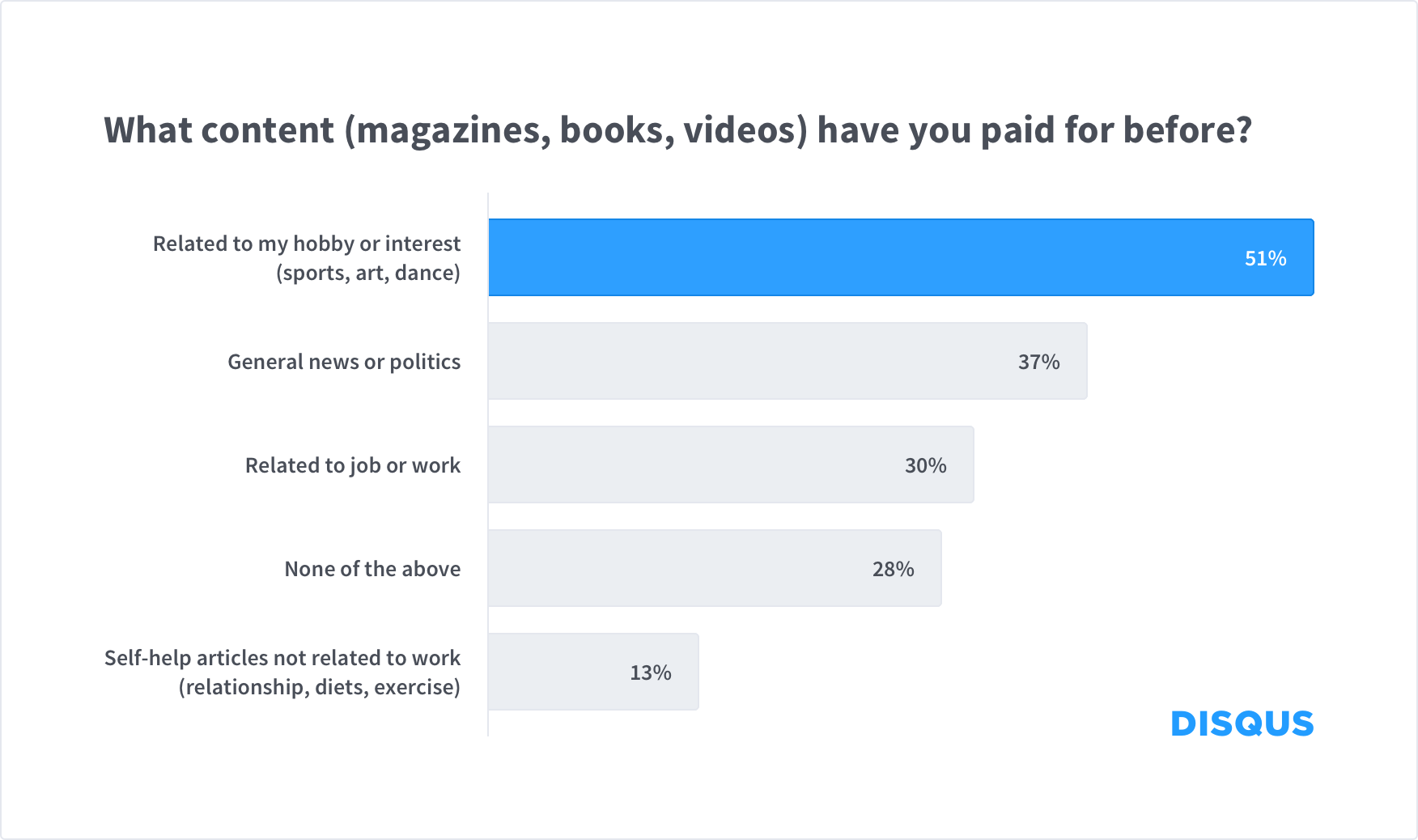
News and politics readers stand out from the crowd
Our wonderful analytics team helped us comb for patterns in our survey data. We found some significant differences between two groups of people: people that self-identified as readers of News and Politics and people that did not.
Specifically, News and Politics readers are more likely to:
- Pay for News and Politics content (46% vs. 15%)
- Discover content via a direct visit to a major news website instead of social media, an RSS feed, or Google search (87% vs. 62%)
- Value factual accuracy (21% more), content curation (18% more), and interestingly, entertainment or humor (19% more)
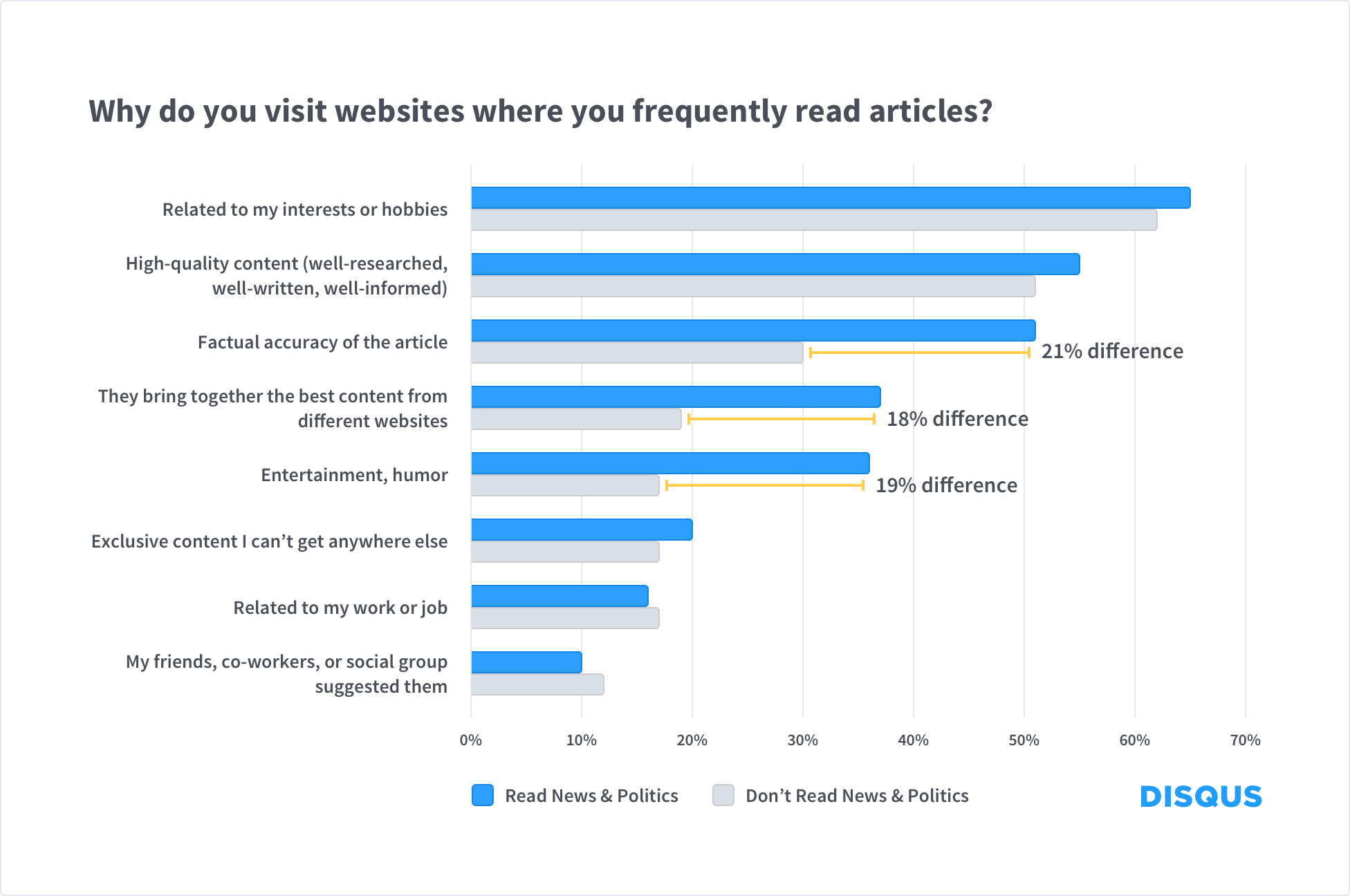
61% of respondents want to interact more with publishers
When asked if readers wanted to interact more (than they currently are) with publishers, 61% said yes. We provided four reader-publisher engagement ideas and gauged their interest for each one:
- 84% of users who wanted to interact more with publishers were interested in providing suggestions for future articles
- 82% were interested in sending “thank you” notes
- 76% were interested in completing post-article satisfaction surveys
- Only 22% were interested in sharing an audio recording of their opinions
These results prove that there are a lot of opportunities to explore encouraging reader-publisher engagement, but maybe not quite at the level of something as intimate as a voice recording. One respondent suggested an option to “send money to support publishers and also donate to projects that solve the problems they are writing about”.
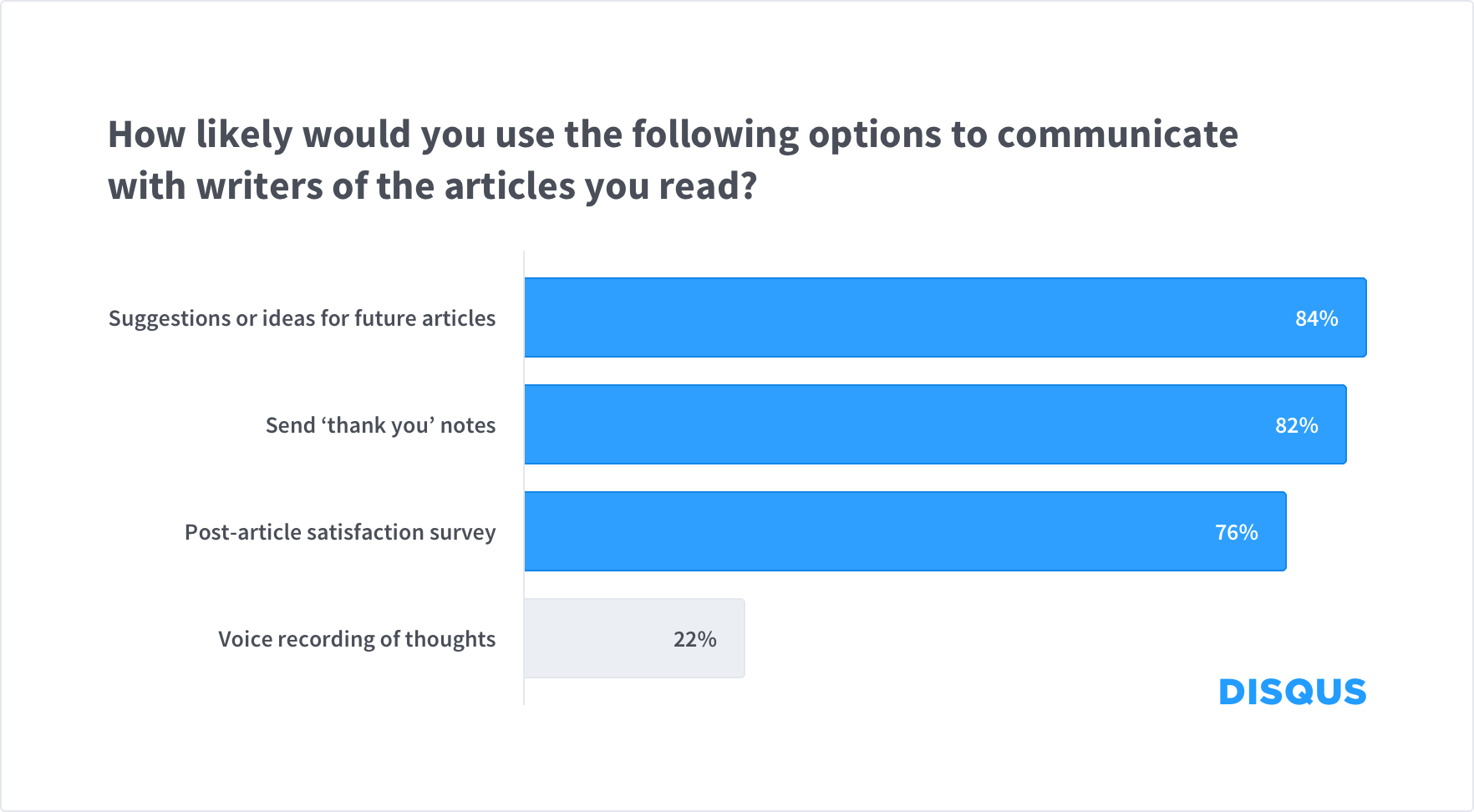
Readers contribute immense value to the conversation
We asked readers why they wanted to engage with publishers. Here are the top five reasons:- Discuss and ask questions
- Make corrections and/or add information
- Give feedback
- Express opinion
- Say thanks
These readers are a generous group of people and their top reasons for communicating with publishers further validates the value of reader-publisher engagement. They provide a lot of relevant and useful feedback to help publishers capitalize on what their audience likes and establish a loyal following.
Here are a two noteworthy responses we received:
“Being able to address the writer is just exciting, challenging, and the beauty of the web.”
“[Commenting] provides greater insight than simply reading the article itself. I think it's in their interest to engage because it builds brand and reader loyalty.”
Some of the nerdy stuff
We're a goal-oriented team that strives to have reason and logic to support any project we set out to do. We also deeply appreciate that our users were willing to take the time (about 3000 minutes, or 50 hours, collectively!) to share more about themselves with us. For these reasons, we wanted to make sure that we would be able to put that time and effort to good use.
We planned this survey by creating a list of hypotheses and structured our survey questions to test them. While we weren't able to answer all of our hypotheses, brainstorming as a team allowed us to create an ongoing list of questions that we can design for future surveys and user interviews. All of this information will help us impact our product roadmap to facilitate reader and publisher engagement as well as help publishers learn more about their audience.
Conclusion
We learned a lot of interesting information and we want to continue learning more about our readers. What did you think about the survey findings? Is there anything you would like to see in future research efforts?
Let us know in the comments below!
